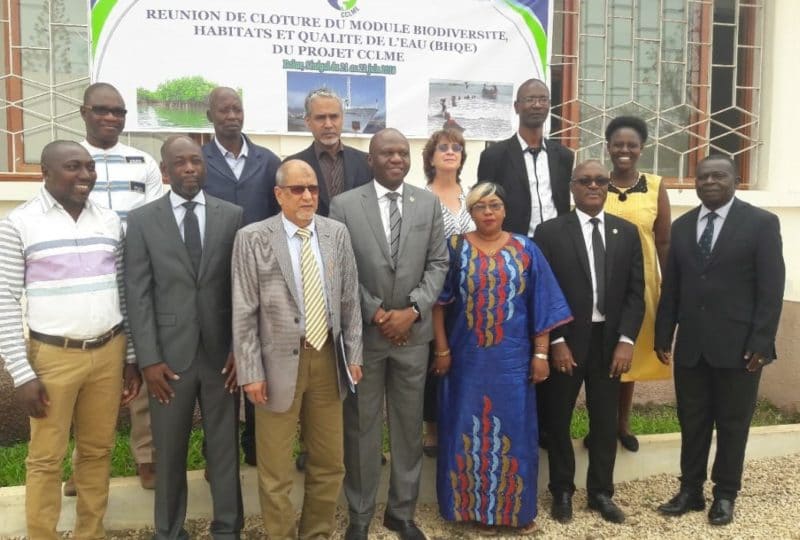The Executive Secretary of the Abidjan Convention has said that the Canary Current Large Marine Ecosystem (CCLME) project has a unique strategic combination of fisheries and ecosystem governance frameworks and will through governance reforms, investments and management programmes, enable the participating countries to address priority transboundary concerns on declining fisheries, associated biodiversity and water quality.

Abou Bamba further disclosed that the CCLME project is being executed by the Food and Agriculture Organisation of the United Nations (FAO) and the United Nations Environment Programme (UNEP) in a combined effort to reverse the degradation of the project ecosystem caused by over-fishing, habitat modification and changes in water quality by adoption of an ecosystem-based management approach.
Speaking at the closing meeting of the biodiversity, habitats and water quality modules of CCLME project and presentation of the achievements of the CCLME modules to stakeholders held at the Centre de Suivi Ecologique (CSE) in Fann, in the Senegalese capital of Dakar, the Abidjan Convention boss noted that the current phase of the CCLME project would be operational in the seven participating countries namely: Cape Verde, Guinea, Guinea Bissau, Mauritania, Morocco, Senegal and The Gambia.
The project, according to him, is funded by the Global Environment Facility (GEF) together with co-financing from participating countries and other partners and is open for co-funding and collaboration with parties interested in contributing to ecosystem management of the Canary Current region.
In what he described as a usual family meeting of member countries, Bamba disclosed that the project is being characterised by a major, nutrient-rich up-welling of deep, cold oceanic waters off the Canary Islands, which stimulates high biological productivity that results in an abundance of both pelagic and demersal fishery resources.
The up-welling progresses in easterly and southerly directions, while gradually dispersing over the continental shelf off Morocco, Mauritania, Senegal, the Gambia, Guinea-Bissau, Guinea and, to a lesser extent, Sierra Leone, as well as around the Cape Verde islands.
The overall objective of the CCLME project is to secure global environmental benefits by protecting the ecosystem from degradation caused by over-fishing and pollution.
According to Bamba, CCLME provides vital food and economic resources for coastal populations bordering the Large Marine Ecosystem and for much of West Africa and provides one of the largest fishing productions in Africa. Its coastal area also provides important goods and services to coastal countries, including critical habitats for fish, wood from mangroves and spaces coastal and marine ecosystems for agriculture, aquaculture, urban development, tourism and transport. He pointed out.
The CCLME project, he said, presents originality due to its strategic approach combining the fisheries and governance in ecosystem management, with the aim to enable participating countries to address priority trans-boundary problems of declining fisheries, associated threats to biodiversity and water quality through governance reforms, investment and management programmes. According to him, it will also promote cooperation among countries, while project partners will monitor the CCLME state based on the scientific results.
All member countries are committed to working together in the CCLME project to fight against the trend of degradation the large Canary marine ecosystem is facing through overfishing, habitat changes and changes in water quality, and adopting an ecosystem approach.
“Component 3 of the project promotes the strengthening of basic knowledge, capabilities and policies necessary for trans-boundary assessment, management of habitats, biodiversity and water quality which are essential for fishing. Three results are expected at this component; the reduction of knowledge gaps in relation to critical habitats, biodiversity and water quality for the purposes of the TDA and the Strategic Action Plan in which is the design activities of this basic geo-referenced data,” he concluded.
By Sheikh Alkinky Sanyang in Dakar, Senegal
